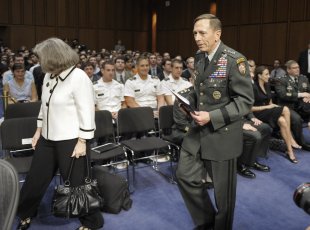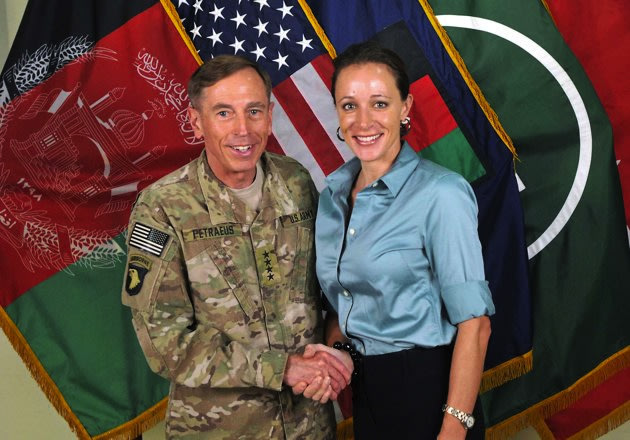BANGKOK (AP) — For President Barack Obama, expanding U.S. influence in Asia is more than just countering China or opening up new markets to American businesses. It's also about building his legacy.
Fresh off re-election, Obama will make a significant investment in that effort during a quick run through Southeast Asia that begins Sunday. In addition to stops in Thailand and Cambodia, the president will make a historic visit to Myanmar, where his administration has led efforts to ease the once pariah nation out of international isolation.
The trip marks Obama's fourth visit to Asia in as many years. He kicks off his schedule in Bangkok. With a second term now guaranteed, aides say Obama will be a regular visitor to the region over the next four years as well.
"Continuing to fill in our pivot to Asia will be a critical part of the president's second term and ultimately his foreign policy legacy," said Ben Rhodes, Obama's deputy national security adviser.
The president's motivations in Asia are both personal and strategic.
Obama, who was born in Hawaii and lived in Indonesia as a child, has called himself America's first "Pacific president." The region gives him an opportunity to open up new markets for U.S. companies, promote democracy and ease fears of China's rise by boosting U.S. military presence in area.
The president, like many of his predecessors, had hoped to cement his foreign policy legacy in the Middle East. He visited two major allies in the region, Egypt and Saudi Arabia, on one of his first overseas trips as president and attempted to revive peace talks between Israel and the Palestinians.
But those talks stalled, and fresh outbursts of violence between Israel and the Palestinians make the prospects of a peace accord appear increasingly slim. The Obama-backed Arab Spring democracy push has had mixed results so far, with Islamists taking power in Egypt and progress in Libya tainted by the deadly attacks on the U.S. Consulate in Benghazi. Obama hasn't been back to the region since 2009.
In Asia, however, Obama will be viewed as something of an elder statesman when he returns less than two weeks after winning re-election. The region is undergoing significant leadership changes, most notably in China, where the Communist Party tapped new leaders last week. Japan and South Korea will both hold new elections soon.
"Most of the leaders he'll meet with will not have a tenure as long as he will as president," said Michael Green, an Asia scholar at the Washington-based Center for Strategic and International Studies. "So he'll go into this in a very strong position."
The centerpiece of Obama's whirlwind Asia tour is his visit to Myanmar. It will be the first time a U.S. president has visited the former pariah state.
Myanmar has become something of a pet project for Obama and his national security aides, who have cheered the country's significant strides toward democracy. Obama lifted some U.S. penalties on Myanmar, appointed a permanent U.S. ambassador and hosted democracy leader Aung San Suu Kyi at the White House this year.
Many of the same strategic motivations behind Obama's larger focus on Asia are at play in Myanmar, which is known by the U.S. as Burma.
The country long has oriented itself toward China, but the easing of sanctions gives American businesses a chance to gain a foothold there. It's also an opportunity for the Obama administration to show other nations in the region, and elsewhere in the world, that there are benefits to aligning with the U.S.
Still, there's little denying that history has been a draw for Obama's team when it comes to its dealings with Myanmar. That's led to criticism from some human rights groups that say Obama's visit is premature given that the country continues to hold political prisoners and has been unable to stem some ethnic violence.
"This trip risks being an ill-timed presidential pat on the back for a regime that has looked the other way as violence rages, destroying villages and communities just in the last few weeks," said Suzanne Nossel, the U.S.-based director of Amnesty International.
But the White House believes that "if we want to promote human rights and promote American values, we intend to do so through engagement," Rhodes said Saturday as Obama flew to Asia.
He said it was important for Obama to convey the message about "the type of action we'd like to see locked in, in Burma as it relates to political reform, as it relates to economic reform, and national reconciliation."
Obama's other stops in the region also underscore the potential pitfalls of going all-in in Asia.
Thailand's 2006 coup, which led to the ouster of the prime minister, strained relations with the U.S. and raised questions in Washington about the stability of its longtime regional ally. Cambodia, where Obama's visit also marks the first by a U.S. president, has a dismal human rights record.
White House officials have emphasized that Obama is visiting Cambodia because it is hosting the East Asia Summit, an annual meeting the U.S. now attends. Aides say the president will voice his human rights concerns during his meeting with Hun Sen, Cambodia's long-serving prime minister.
Still, human rights groups fear Obama's visit will be seen within Cambodia as an affirmation of the prime minister and a sign to opposition groups that the U.S. stands with the government, not with them.
Secretary of State Hillary Rodham Clinton was also traveling to Thailand where she was going to join Obama. Clinton then was to fly to Myanmar with Obama on Air Force One. It will be the last joint trip for the president and his secretary of state, the once presidential rival who went on to become Obama's peripatetic chief diplomat. Clinton is planning on leaving the administration.
___
Follow Julie Pace at http://twitter.com/jpaceDC













